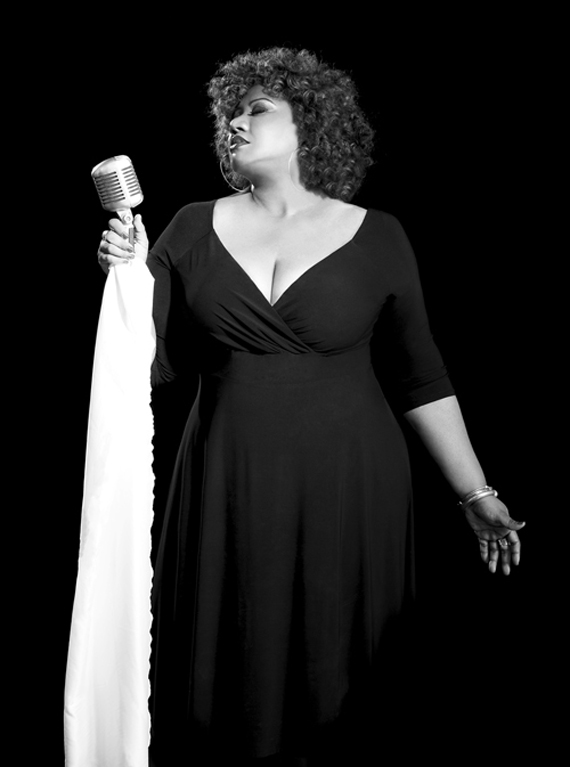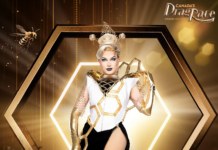
KEEP GETTING BETTER :: Across Canada September 13th, thousands will walk the Scotiabank AIDS Walk For Life, in memory of loved ones who lost their lives to HIV/AIDS, and in support of those living with HIV/AIDS and the still-needed work done by AIDS Service Organizations across the country.
Shaun Proulx: Your Love Fades Away is your new single, available now on iTunes.
Simone Denny: Yeah!
SP: You’ve got a full-length album coming out, The Stereo Dynamite Sessions.
SD: Yes, Volume 1.
SP: Volume 1 – will there be Dynamite Sessions volume 2?
SD: Two, three, four, we’ll keep it going!
SP: When is that out? Do we know yet? I know it’s fall.
SD: Yeah! It actually will be out on November 4th on my birthday!
SP: Scorpio!
SD: Yes!
SP: Remember I just guessed that when we were together last?
SD: But I’m a nice Scorpio!
SP: Not so sure, if I can just guess! But before that, on September 13th, we’re going to knock it out of the park, having you on stage after the Walk. What’s it like to be re-visiting old music, like Broken Bones?
SD: I get requests to sing Love, Inc. all the time. I love singing it, I love seeing people react, and dance. It takes them back to a good place in their lives, and I enjoy it.
SP: Let’s talk a bit about the cause, because you come from an industry, and you come from an audience – and while your audience isn’t predominantly gay and HIV/AIDS isn’t a gay dis-ease exclusively – still you must have seen, heard, experienced, and watched. How has HIV played a role in your life experience?
SD: Well, I love people, and I’ve met a lot of people in my life, especially in the industry I am in. So therefore I’ve come in contact with people who are living with HIV/AIDS. It affects me because these are people who that are talented, they’re beautiful people, and I would like to see them live, and enjoy their life. Thank God there are cocktails out there that they can take, so they can maintain a healthy lifestyle. But I would love to see this dis-ease completely disappear in our lifetime, and I think that we will get there very soon. But, in the meantime, I’m there to sing my heart out, and do what I can to support people.
SP: I wish that your open heart was the way everybody felt HIV/AIDS. I came out a year ago, as an HIV-positive person.
SD: I remember.
SP: The reason why I thank you for your open-heartedness is what I came to realize from the doing of that, is that it’s stigma, that is the real toxicity of this dis-ease, at least here in North America where we have drugs most of us are lucky enough to access. It was a stunning experience to feel some of the stigma that is still out there, and experience it myself when I came out, so thank you for your non-judgmental open-heartedness.
SD: I think education is the key. The more you know about it, the more you understand it. I inter-mix with people who have it, and who are dealing with it, and it’s just like everybody else. Everybody has something they are going through. For me, I went through cancer, and I survived it, and a lot of people didn’t know that. I kept it very quiet to myself for awhile, so I understand exactly how something like that can affect your life, your psyche. I know how difficult it is to even share this sort of information with someone, so my heart, as you said, is very open, and I just love people, and I’m here to help, in any way that I can.
SP: I didn’t know that you’ve been through a cancer battle, so thank you for sharing.
SD: Nobody did.
SP: Is that why, when you were on my show last time, and I said, “Where have you been this last little while?” you said, “Oh, you know, I’ve been busy with stuff.” It wasn’t a full and complete answer, and I felt like…
SD: There was more there.
SP: I’m a bad radio-host that way, because I know you, and you’re my friend, so I decided not to go there, even though obviously there’s somewhere to go. Because I wouldn’t want to do that to someone I know. You didn’t want to tell anyone about your health status – why?
SD: I didn’t tell relatives. I told my immediate family, I told my mom, my dad, my sister knew, and maybe about two or three close friends knew. It was just a situation where I needed to take time to gather my strength, to see what was before me, and focus in on me, and lock everyone else out. I find that when you start to tell people, everyone figures out why you got it, how you got it, what the cure is, what you need to do, and I find that sometimes, maybe people mean well, but it can be very negative, and it can shift your focus a lot. I just needed time to focus on me. I dealt with colon cancer, I was very blessed to get through it, and I’m still standing, and I’m here.
SP: I’m glad to hear that you’re well. When I was diagnosed myself, my attitude was very much the same, as what you were saying. I wasn’t ashamed, and I’m not ashamed, but I didn’t want to make the issue bigger by adding everyone else’s energy to it. I wanted the dis-ease to know that it’s place in my life was going to be very very small.
SD: And I’m all about the energy, so I get that. I understand exactly what you mean.
SP: What was the reaction though, when the rest of the world found out?
SD: You know, this is probably the first time I’ve ever talked about it to anyone, to be quite honest.
SP: I’m honoured.
SD: Thank you! You’re my friend, of course! Most of my family members were pretty shocked! “Why didn’t you tell us?!” and I’m like, “You know what? I’m good now, everything’s fine.” One family member, who had a big celebration for my grandmother’s 100th birthday, I pulled him aside, and he was very close to me, and I didn’t want to worry him. I told him, and he almost burst into tears. And he just hugged me and hugged me, and wouldn’t let go, and it was really sweet. And I tell people, “It’s nothing against you personally, I just needed to get through it.” I thought I was going to have to do chemo, I didn’t know what was coming, and It was still a shock to me, to be quite honest, because I was like, “I have what? Stage what? What?” So it took emotionally a lot for me to catch up to what was happening.
SP: Thank you for going there. When I came out, I was on CBC radio and I talked about the idea of dis-ease and humanity. We all have aspects of our humanity we want to deal with personally and don’t want everyone’s judgment, or everyone’s idea of how to fix it, anyone’s energy, period. Whether it’s dis-ease, divorce, bankruptcy, body issues, messy families, we all have something we are dealing with – you never know what the person next to you is going through. >Tweet this! I thank you so much my friend for sharing that.
SD: My pleasure!
SP: Dis-ease and health, and the way we look at it, and the way we handle it, and the way we judge other people period, they all go hand in hand.
SD: Very much so.
SP: So now, you know what, now I’m really excited that you are going to headline at Yonge/Dundas Square.
SD: I’m really excited too, I can’t wait!
SP: I love you and I can’t wait to see you next month.
SD: I love you too, thank you so much for this conversation.





